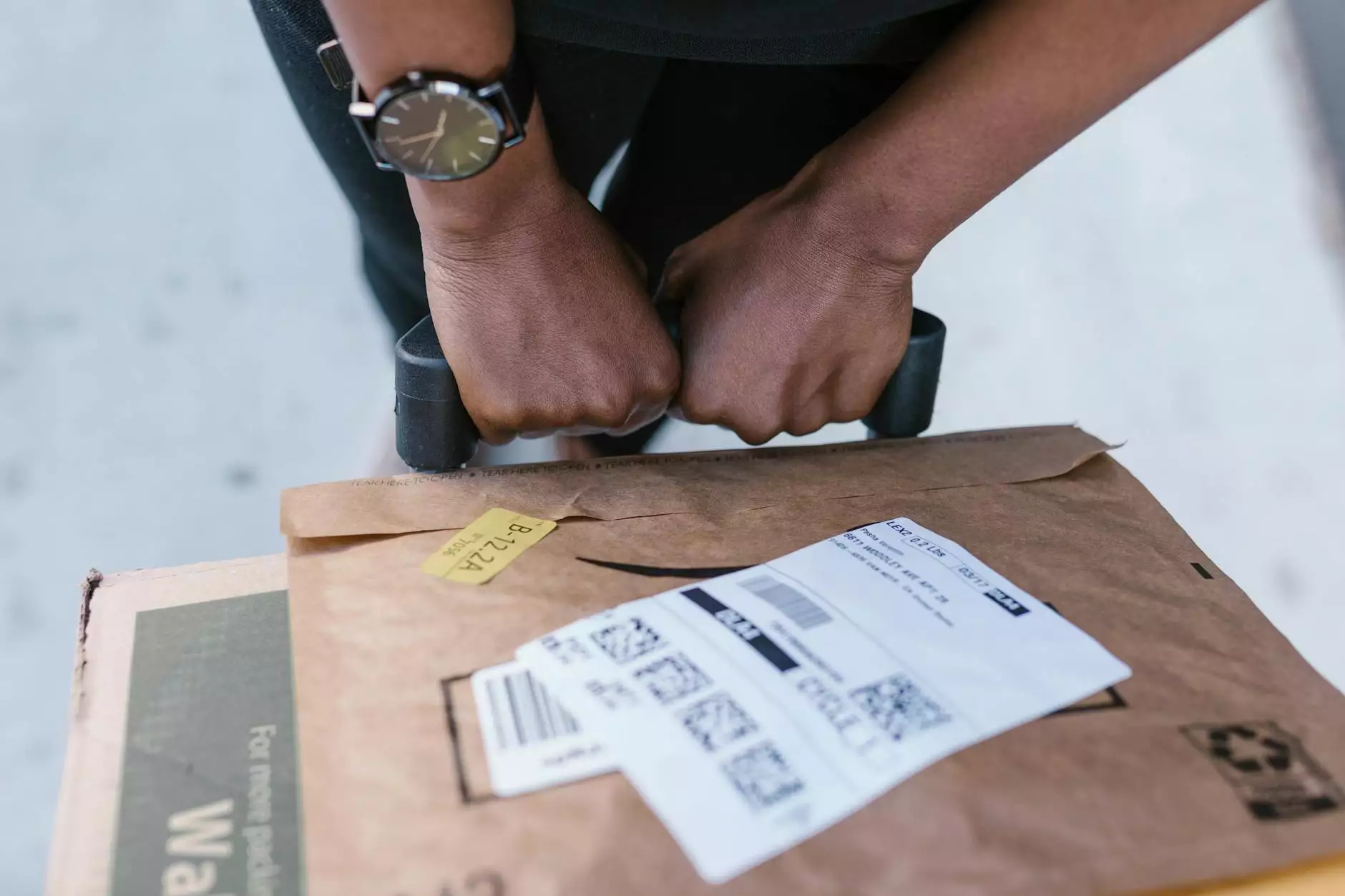Understanding Purchase Certificates: A Deep Dive into Business Value

In the ever-evolving landscape of global commerce, businesses constantly seek ways to enhance credibility and facilitate smooth transactions. One pivotal concept that has emerged in this context is the purchase certificate. This article delves into the significance of purchase certificates, their role in different industries, and how they can impact business operations.
What is a Purchase Certificate?
A purchase certificate is a document that serves as proof of acquisition for goods or services. It validates that a transaction has taken place and can be used for various purposes, including record-keeping and tax compliance. Businesses utilize these certificates to safeguard their interests and ensure transparency in their dealings.
The Importance of Purchase Certificates in Business Transactions
Understanding the significance of a purchase certificate is crucial for any business aiming to establish credibility. Here are several compelling reasons why businesses should consider incorporating purchase certificates into their operations:
- Proof of Purchase: The primary function of a purchase certificate is to provide an official record of the transaction, which can be essential for dispute resolution.
- Tax Compliance: In many jurisdictions, having a documented proof of purchase is necessary for tax deductions and compliance, making it a crucial part of financial management.
- Inventory Management: For businesses that manage inventory, purchase certificates help track stock levels and validate transactions against inventory records.
- Enhancing Customer Trust: Providing customers with a purchase certificate can enhance their confidence in your business, knowing that you maintain transparency in all transactions.
- Fraud Prevention: Utilizing purchase certificates can help businesses safeguard against counterfeit money or fraudulent transactions.
How to Obtain a Purchase Certificate
Acquiring a purchase certificate can be a straightforward process, typically involving the following steps:
- Transaction Completion: Ensure that the transaction is fully completed, involving all necessary payments.
- Documentation Preparation: Gather all relevant documentation that confirms the details of the transaction.
- Request for Certificate: Contact the seller or service provider and formally request the purchase certificate.
- Review and Confirmation: Once received, review the certificate for accuracy and completeness before storing it for future reference.
Different Types of Purchase Certificates
There are various types of purchase certificates tailored to different business needs. Understanding these can help businesses choose the right type for their operations:
1. Retail Purchase Certificates
Commonly issued by retailers, these certificates serve as proof of consumer purchases and are essential for returns and exchanges.
2. Commercial Purchase Certificates
Used primarily in B2B transactions, these certificates validate purchases made by one business from another and may include bulk orders or contracts.
3. Digital Purchase Certificates
With the rise of e-commerce, digital purchase certificates provide electronic proof of purchase, which can be easily stored and shared. They are often sent via email or made available through customer accounts.
4. Gift Purchase Certificates
These are issued for gift purchases, allowing recipients to redeem them at the issuing retailer. They are popular during holiday seasons and special occasions.
The Role of Purchase Certificates in Counterfeit Prevention
In today's market, businesses face risks from counterfeit money and fraudulent documents. A robust anti-fraud strategy includes the implementation of purchase certificates. Here's how they can assist in mitigating these risks:
- Verification: Purchase certificates serve as a means to verify the legitimacy of a transaction, helping businesses discern between authentic and counterfeit transactions.
- Record Keeping: Long-term record maintenance of purchase certificates can help trace back transactions in case of disputes regarding counterfeit money or fake documents.
- Legal Protection: In legal terms, having a purchase certificate can bolster a business’s case in disputes involving counterfeit money, providing documented proof of legitimate transactions.
Best Practices for Managing Purchase Certificates
To maximize the benefits of purchase certificates, businesses should adhere to best practices in their management:
- Digital Storage: Opt for a digital storage solution that allows easy access and organization of purchase certificates.
- Regular Audits: Conduct periodic reviews of purchase certificates to ensure all records are accurate and up-to-date.
- Educate Employees: Train employees on the importance of maintaining proper records of purchase certificates to prevent loss and ensure compliance.
- Secure Transactions: Implement secure transaction policies to minimize the risk of counterfeit and fraud.
Industry Applications of Purchase Certificates
Purchase certificates have far-reaching applications across numerous industries:
1. Retail Sector
In retail, purchase certificates not only facilitate returns but also provide customers assurance of genuine transactions, thus boosting brand loyalty.
2. Manufacturing Sector
Companies in manufacturing rely on purchase certificates for managing raw material acquisitions, ensuring that goods received correspond with orders made.
3. E-commerce
As e-commerce continues to grow, the demand for digital purchase certificates has increased, providing consumers with proof of online transactions swiftly and securely.
4. Education and Training
In educational institutions, purchase certificates are often required for course registrations and fee payments, ensuring clear records of student transactions.
The Future of Purchase Certificates
The advancement of technology, particularly blockchain and digital receipts, is reshaping how purchase certificates are managed. Here's a glimpse into the future:
- Blockchain Integration: Businesses may adopt blockchain technology to secure purchase certificates, enhancing authenticity and reducing the risk of tampering.
- Automation: Automation tools will streamline the generation and distribution of purchase certificates, improving operational efficiency.
- Real-time Tracking: Future purchase certificates may incorporate real-time tracking capabilities, offering instant verification of transaction authenticity.
Conclusion
In conclusion, the purchase certificate is a powerful tool that can bolster business operations and enhance transactional integrity. By understanding its significance, obtaining relevant types, and adhering to best practices, businesses can not only protect themselves but also foster trust with their customers. As the landscape of commerce continues to evolve, embracing purchase certificates and staying ahead of technological advancements will be critical to maintaining a competitive edge.
For more information and resources on managing purchase certificates effectively, visit HighTechLab.









